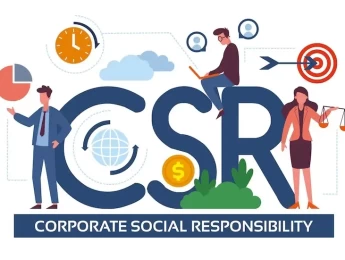Retail fashion is a highly volatile market, and managing supply chains requires agility, flexibility, and swift decision-making skills.
This course provides a comprehensive understanding of key supply chain issues and strategies specific to the retail fashion sector. You will examine trends specific to retail fashion, such as fast fashion and online retailing. A key area of focus is global supply chains and the implications of sourcing, corporate social responsibility, and sustainability on supply chain logistics.
Upon completion of this course, participants will be able to:
- Develop an understanding of the retail fashion sector and effective supply chain management.
- Discuss shifts in the fashion industry and the impacts of fast fashion, luxury fashion, online retail, and globalisation.
- Identify the types of sourcing strategies and their relationships to supply chain responsiveness.
- Examine in-store and online customer services.
- Explore social and environmental issues involved with offshore production .
This course is intended for:
- Retail Fashion Owners, Managers, and Professionals
- Any retail-related professionals, including distributors, commercial property managers, and manufacturers
This course employs a variety of adult learning styles to ensure full understanding and comprehension. Participants will review case studies to highlight key areas of importance and potential pitfalls. They will be equipped with top-tier tools for engaging in learning exercises to enhance their skills. By analysing these examples, participants will thoroughly understand how these skills, techniques, and methods can be effectively applied in the workplace. Additionally, interactive workshops and collaborative discussions will allow participants to share insights and refine their approaches, further solidifying their learning experience.
Day 5 of each course is reserved for a Q&A session, which may occur off-site. For 10-day courses, this also applies to day 10
Section 1: The continually Evolving Nature of Fashion Retailing
- Examine the role of fashion in culture.
- Understand the rapidly evolving environment of retail fashion.
- Discuss the growth of fast fashion and its impact on corporate social responsibility (CSR).
- Review the characteristics of the luxury fashion sector.
- Explore the online revolution in fashion and the resulting logistical challenges.
- Examine the impact of globalisation on fashion supply chains.
Section 2: Sourcing in Global Fashion Supply Chains
- Describe sourcing strategies, including offshore sourcing and outsourcing.
- Examine the nature and types of outsourcing.
- Compare and contrast offshore sourcing and re-shoring.
- Discuss supply chain responsiveness for different product categories.
- Differentiate between lean, agile, and leagile supply chain management strategies.
Section 3: Consumer Services: In-Store
- Describe retail supply chains for physical locations.
- Examine the features of in-store consumer services.
- Discuss the design and strategies of retail logistic systems.
- Review recommendations to enhance in-store customer services.
Section 4: Consumer Services: Online
- Describe online retail supply chains for fashion.
- Review the benefits of streamlining customer experiences using omnichannel retail.
- Examine the design considerations for omnichannel logistics.
- Review recommendations to enhance fulfilment services.
Section 5: Supply Chain Management of Luxury Fashion
- Define luxury products and branding.
- Explore the evolution of luxury branding.
- Describe how luxury brands gain control of marketing channels.
- Identify supply chain strategies unique to luxury fashion.
Section 6: Global Logistics
- Define and describe global channels of distribution.
- Identify risks and disruptions to the security of global supply chains.
- Describe globalisation and its impact on retail fashion logistics.
- Examine the economic and supply chain implications of international logistics for fashion retailers.
Section 7: Global Fashion Supply Chains and Corporate Social Responsibilities
- Define corporate social responsibility (CSR) in the context of retail fashion.
- Review strategic CSR initiatives.
- Describe the application of CSR activities in global fashion supply chains.
- Discuss CSR compromises in global clothing production.
- Explore case studies of CSR practices.
Section 8: Logistics of Sustainable Fashion Retailing
- Review key sustainability concepts and their application to supply chain management and logistics.
- Describe sustainability management strategies and systems.
- Discuss sustainability practices and impacts on the retail fashion sector.
Upon successful completion of this training course, delegates will be awarded a Holistique Training Certificate of Completion. For those who attend and complete the online training course, a Holistique Training e-Certificate will be provided.
Holistique Training Certificates are accredited by the British Assessment Council (BAC) and The CPD Certification Service (CPD), and are certified under ISO 9001, ISO 21001, and ISO 29993 standards.
CPD credits for this course are granted by our Certificates and will be reflected on the Holistique Training Certificate of Completion. In accordance with the standards of The CPD Certification Service, one CPD credit is awarded per hour of course attendance. A maximum of 50 CPD credits can be claimed for any single course we currently offer.
- Course Code PO1-116
- Course Format Classroom, Online,
- Duration 5 days














